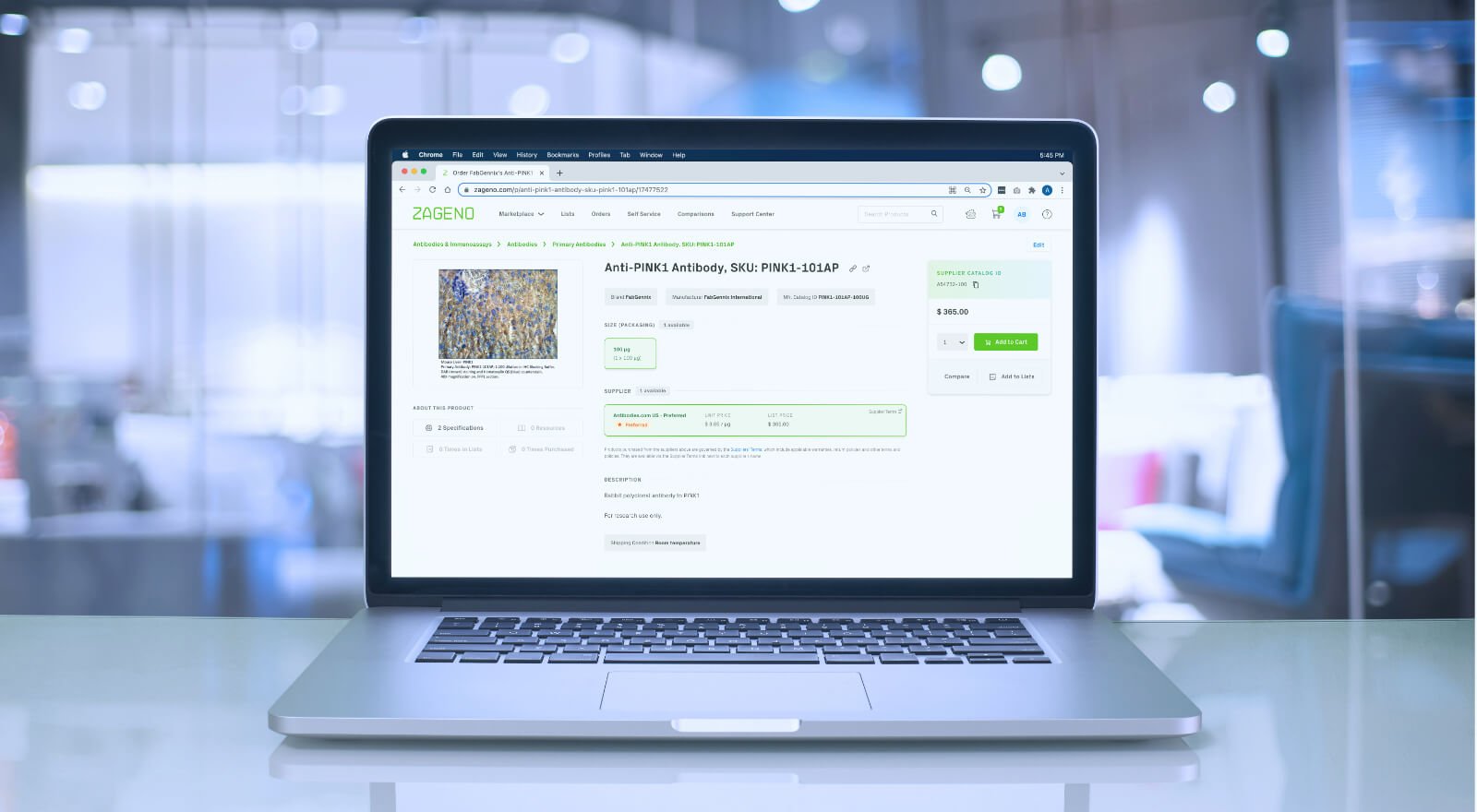Life science marketplaces have become a key tool to help growing R&D biotechs scale lab operations. With the help of marketplaces, lab managers no longer need to spend their valuable time poking around various vendor websites and comparing supply lists, equipment delivery dates, and product costs of various suppliers in order to find the best quality items for the lowest costs. In a world affected by supply chain limitations, product shortages have led to scientists requiring more vendors, and marketplaces offer the benefits of multiple vendors’ worth of supply options along with the simplicity of a single vendor of record.
Lab supply marketplaces serve as a central hub on a single platform where scientists can go to find the supplies, equipment, and tools they need. With a variety of vendors displayed side by side, lab managers reap the benefits of complete cost transparency. In a life science marketplace, specialty vendors are allotted the same visibility as more dominant brands and suppliers and scientists can find what they need using advanced search functions. They can also save their order for one-click re-ordering, saving hours of manually adding lab items to the online shopping cart.
Let’s take a closer look at the benefits for lab managers and scientists when utilizing a life science marketplace for their lab supplies.
How Life Science Marketplaces Save Procurement Costs
When lab managers and procurement teams are determining their lab supply acquisition process, the main considerations are cost and ease of use. Nine times out of ten, the less expensive the supply and shipping costs are, and the easier it is to find and purchase the needed items, the more likely labs are to use your services as a vendor.
Larger Lab Supply Vendor Selection
Instead of manually toggling between supply vendors, comparing product costs and shipping estimates, life science marketplaces provide scientists with the access they need to a wide range of lab supplies all on the same platform— allowing lab managers to make informed supply procurement decisions that remain under budget, in addition to reducing labor costs due to the time-saving nature of marketplaces.
And according to James Pavlovich, Vice President of Customer Success at ZAGENO, lab budgets for biotech labs are only growing larger. “The overall operational costs of running today’s labs are enormous,” says James. It is by his estimates that the average cost of running a biotech lab is anywhere in the range of $10,000 to $40,000 and pharma labs can cost up to $100,000. Naturally, this leads to lab managers around the country scrambling to find sustainable cost-saving solutions.
Life science marketplaces are known so save lab managers time and money, but just how much? Let’s take a look at the numbers. According to Pavlovich, using a lab supply marketplace has saved some companies up to 19% of their total lab supply budget. 73% of that savings is the direct result of the automatic vendor price comparison provided by lab supply marketplaces.
Life Science Product Price Transparency
A marketplace’s ability to save lab managers supply costs comes down to an increase in transparency and the ability to automate procurement processes. Pavlovich believes that this shift toward the transparent was inevitable. “The structure is recalibrating right in front of our eyes where buyers are becoming more informed and have more information to make a choice,” says James.
Benefits of Using a Marketplace for Life Science Products, Equipment, and Tools
In addition to being proven to save supply procurement costs, there are many other benefits to using a marketplace for your life science supplies. These benefits include:
- The ability to automatically compare vendors and access more vendors and available products through one platform.
- Marketplaces put all lab suppliers on an equal playing field, which makes it easy for lab managers to regularly learn about specialty suppliers.
- Marketplace platforms exist as a single hub for all supplier communication and consolidate invoices, serving as the single vendor of record for all suppliers— a more organized alternative to juggling multiple email chains and vendor contact information.
- Marketplaces offer a single platform for tracking shipments and being notified of delays, in order to consolidate supply tracking.
- Marketplaces make managing the large budget of a lab more manageable, reducing the need for huge data teams.
- The ability to easily view your procurement history, to compare current and past invoices in order to identify trends.
- Marketplaces allow for buyers who are more informed and who have more control over the procurement process.
- With advanced life science marketplaces, scientists can save orders for one-click reorder and automate aspects of the procurement process to save time and improve accuracy.
To begin using a life science marketplace and start saving supply procurement costs today, get a free lab assessment from ZAGENO.




